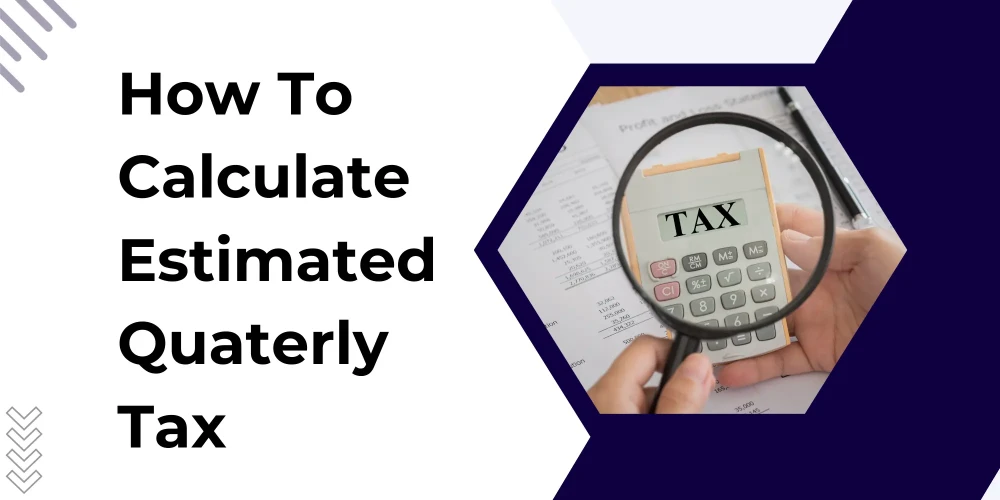Table of Contents
Taxpayers must file their taxes before the deadlines set by the IRS to avoid penalties. However, in many cases, taxpayers have found themselves under circumstances that do not allow them to do so. The IRS has made provisions for such individuals by providing a federal extension of six months. This, however, does not allow taxpayers to delay paying their taxes but instead allows them to delay the deadline for tax filing and submission of paperwork. Individuals, businesses, trusts, or estates can access this federal extension, irrespective of whether you file taxes online or offline. However, to avail of this deadline extension, one must fill up Form 4868. If granted the deadline extension, the final deadline for tax filing changes to October 16, 2023, instead of April 18. Let us delve deeper into this topic and understand how one can avail of this federal extension.
Things you need to know about the federal tax extension
As stated earlier, the federal extension for tax filing only allows a taxpayer to delay the deadline for tax filing and not the deadline for the payment of taxes owed to the government. To avail of this tax extension, you must have submitted Form 4868 before April 18. Therefore, it is suggested that you calculate the amount of taxes you might owe to the government and pay the same before the deadline for tax payments, as delayed tax payments lead to interest on the unpaid balance until the taxpayer makes the payments. If you fail to file your taxes without filling out Form 4868, you must pay a late filing penalty of 5% of the total balance you owe to the IRS monthly. The maximum permissible penalty taxpayers can owe to the IRS is 25% of their tax bills. S Corps and LLCs are penalized based on the number of partners involved in their business and the no. of months the filing is delayed.
If you live outside the United States of America or Puerto Rico, you are automatically granted a filing extension of two months. This extension is automatically granted to taxpayers outside the US or Puerto Rico and military or naval personnel posted outside the above-mentioned locations. This is because they face several challenges while filing their tax returns. Some of these challenges include:
- Differences in time zone make it difficult for them to contact the IRS or the people responsible for tax preparation within their working hours.
- People living outside the US and Puerto Rico might also find it hard to understand tax laws and forms because of language barriers, which the IRS considers.
- People living outside the US and Puerto Rico might be unable to access tax information as quickly as those living within the country, making the tax filing process harder.
- People living outside the US and Puerto Rico also deal with exchange rates, and foreign currencies while filing their tax returns, which makes it inconvenient for them to pay their taxes on time. The IRS has appropriately identified and considered these issues, leading to the automatic two-month federal extension.
Federal extension for businesses:
There are different deadlines for different businesses, and the classification of the business determines the extra time that is given to the business to file their taxes. The extended deadlines for different types of business include:
- S Corporations: 15th day on the 3rd month after the deadline.
- C Corporations: 15th day on the 4th month after the deadline.
- Partnership or LLC taxed as a partnership: March 15 following the tax year.
- Schedule C, sole proprietorship: April 15 of the following year.
Information required to file for the federal tax extension?
To file for the extension, you are not required to provide a reason for the same.
- The information you must provide in Form 4868 includes your name, SSN, address, and the SSN of your spouse or dependents. The personal information mentioned above must be filled in in Part 1 of the Form.
- In the second part of Form 4868, the taxpayer is required to provide an estimate of their final tax bills. The applicant is supposed to subtract the tax payments that have already been made for the year and pay the remaining balance owed to the IRS with this form.
- This form can be filed with forms from the 1040 series to extend other returns, including Form 1040, Form 1040-SR, 1040-NR, 1040-PR, and 1040-SS.
- If your business is a sole proprietorship, you can file for a federal extension, including Schedule C by submitting Form 4868. However, Corporations and LLCs file extensions by filling out Form 7004.
That is all the information one would need to file Form 4868. However, taxpayers are suggested to get a good estimate of their final tax bills to be paid while filing for the federal tax extension. A closer estimate of tax bills allows the taxpayer to pay as much of the actual tax bills as possible.
Things to keep in mind while filing a federal extension:
Taxpayers are not to confuse the extension of the deadline for tax filing with an extension for payment of taxes owed to the IRS. The due date for tax payments is still April 18, 2023, for the tax year 2022. By paying a higher percentage of what is owed to the IRS, taxpayers would incur less interest and penalties if their actual tax bills come out to be more than they had estimated.
If you file taxes online and apply for the federal extension online, you must send a copy of the forms filled electronically with the check. The copy of the form sent along with the check helps the IRS deposit the check to your bank account without any mistakes. Moreover, if you pay your estimated taxes online or through EFTPS, Direct Pay, or a debit/credit card, the IRS will allow you to skip filling out Form 4868 for the extension.
One must also remember that Form 4868 does not allow taxpayers to get an extension for filing estate or gift tax returns. To gain an extension for the same, a taxpayer would have to fill up Form 8892. There are some possible drawbacks of a federal tax extension. If you fail to pay at least 90% of the taxes owed to the IRS by the original date, you might pay interest and penalties on the unpaid taxes. Some tax credits and deductions have a specific deadline, and you might risk losing them by obtaining a federal extension.
However, you can take the stress of the tax season by reaching out to NSKT Global. A dedicated team of experts is available 24*7 to help you file your taxes accurately and on time. Our experts are trained to provide you with the most efficient tax strategies, which maximize your savings, and minimize your stress. Book an appointment with one of our experts and find out how you can benefit from the services offered by NSKT Global!







